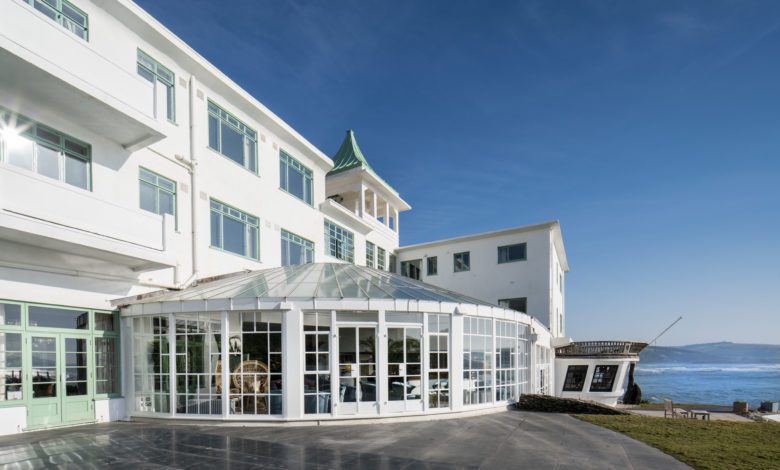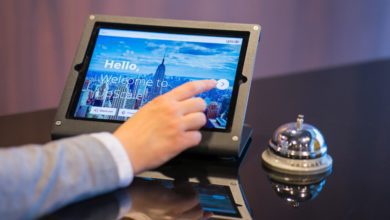Navigating operational challenges in the hospitality industry
By Penny Brown, the managing director of Burgh Island Hotel

In the past, the UK’s hotel industry has proved it can withstand adversity, having faced no shortage of challenges over the years — from economic meltdowns, World Wars, and most recently, a global pandemic. The sector has demonstrated its resilience time and time again.
As it stands, the hospitality industry is facing a multitude of operational challenges that require careful navigation and strategic planning to overcome. From managing fluctuating demand and evolving customer expectations in a post-pandemic society, to addressing changing sentiments towards sustainability. From the talent shortage brought about by Brexit and negative attitudes towards the sector, to the rapid pace of technological development; and all this while ensuring operational efficiency to deliver a high-quality guest experience. Undoubtedly, operational obstacles lay ahead — but as the industry has shown time and again, with the right approach there is nothing it cannot overcome.
Evolving expectations — but keep the personal touch
Rapidly evolving customer expectations present another significant challenge for hotels. Modern travellers seek enhanced personalised experiences and seamless technology integration. Hotels can invest in technology such as mobile check-in/out, digital concierge services, and personalised communication channels to provide a better customer experience.
Moreover, the rising number of online booking platforms and alternative accommodation providers has intensified competition, and recent studies show that the average traveller looks at 38 different websites before committing to accommodation. Hotels need to invest in robust online marketing strategies, strengthen their online presence, and actively manage their reputation on review platforms to stand out. Embracing technology, implementing direct booking initiatives, and fostering guest loyalty through personalised rewards and experiences can help to maintain a competitive edge and drive direct bookings.
That being said, the move towards a more technological approach to hospitality shouldn’t overshadow the evergreen importance of the personal touch. Hotels should examine how they can meet the changing preference of guests by offering unique amenities such as wellness facilities, sustainable products and experiential activities.
Investing in your team
The hotel industry relies on a skilled and motivated workforce to deliver incredible service. However, attracting, training, and retaining talent can pose operational challenges. High turnover rates and labour shortages are common; with turnover in the sector nearing 6%, this leads to increased recruitment and training costs.
To address this, hotels can implement comprehensive talent management programmes, incorporate competitive compensation packages, deliver strong career development opportunities, and utilise employee recognition initiatives. Investing in employees’ well-being, work-life balance, and work culture can create a motivated and dedicated workforce that contributes to enhanced guest satisfaction.
Keeping costs down and standards up
Maintaining operational efficiency while controlling costs is a perpetual challenge for hotels. Energy prices, inventory management, and employee productivity all play critical roles in the profitability of a hotel. Adopting energy-efficient practices, such as LED lighting and smart thermostats, can reduce utility expenses. Effective inventory management systems and supply chain partnerships also help streamline procurement processes, minimise waste, and ensure cost-effectiveness. Additionally, integrating technology to automate routine tasks, implementing property management systems, and utilising data analytics/AI for decision-making, can significantly enhance operational efficiency and productivity.
What’s key for hotels at times of economic strain is ensuring that guest experience remains paramount. Small touches such as the warmth of a welcoming smile, the personalised recommendations from knowledgeable staff, and the ability to anticipate and cater to individual needs are all vital elements that technology alone cannot replicate.
Maintaining high standards is a symbiotic process: satisfied guests often become repeat visitors, while bookings are bolstered by positive reviews. At a time when operational costs are rising, it is more important than ever to secure reservations and fill rooms by providing an exceptional customer experience.
ESG and Sustainability
With environmental issues becoming increasingly pressing across all industries, hotels are faced with the challenge (and opportunity) of integrating sustainability practices into their operations. In a recent report from the World Travel and Tourism Council, nearly 69% of travellers were actively seeking sustainable accommodation options in 2023. Additionally, employees are seeking jobs that align with their own ethics.
Hotels can address this by prioritising initiatives such as energy-efficient systems, water conservation, waste reduction, and responsible sourcing of materials. Furthermore, hotels can engage guests in their efforts by encouraging and educating on their own sustainable practices and offering incentives for eco-friendly choices.
Operating a successful hotel in the face of ongoing challenges requires adaptability, strategic planning, and first and foremost, a customer-centric approach. By proactively addressing fluctuating demand, embracing evolving customer expectations, effectively managing workforce dynamics, optimising operational efficiency, and staying competitive in the digital landscape, hotels can thrive.
As the industry continues to evolve, hotels that effectively navigate these challenges and prioritise sustainability will be well-positioned against competitors to provide exceptional guest experiences, drive customer loyalty, and achieve long-term success in a responsible and environmentally conscious manner.









